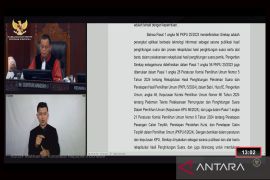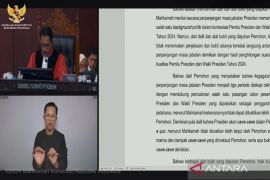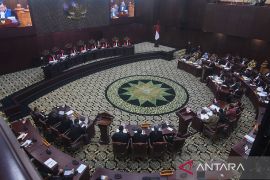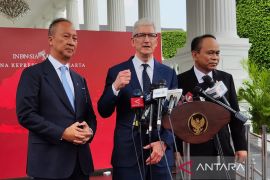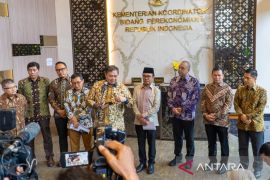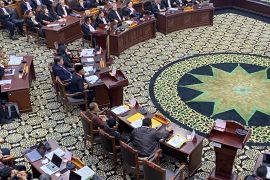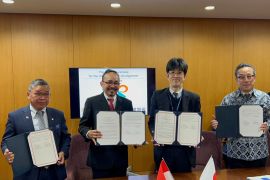Indonesia was represented by Transportation Minister Freddy Numberi and the European Union by its ambassador Agnes Vargha and Vice President of the European Commission for transportation affairs Siim Kallas.
"The agreement was signed at the UE Council building in Brussels on June 29, 2011, at 6 pm Brussels time, in the presence of Indonesian ambassador to Belgium Arif Havas Oegroseno and Air Transportation Director General of the Transportation Ministry Herry Bhakti," daily executive of the Public Communications Center J.A. Barata said here on Thursday.
The agreement is normally also called horizontal agreement.
On the occasion the transportation minister said that the signing of the agreement is a legal basis for cooperation between Indonesian and the European Union, especially in air transportation and an important measure for closer Indonesia-UE relations.
"It is very strategic in the future, especially in the application of high standards in air security and safety," he said.
The horizontal agreement provides a legal umbrella of bilateral agreement in certain aspects including flight safety, taxation, and competition adjustments.
The three aspects are adjusted with UE regulations and are complementary to the air transportation bilateral agreement between Indonesia and UE member countries.
Indonesia currently has air transportation bilateral agreements with 18 UE member countries, including Austria, Belgium, The Netherlands, Bulgaria, Czech Republic, Denmark, Finland, Hungary, Italy, UK, Germany, France, Luxembourg, Poland, Romania, Spain, Sweden, and Greece.
The signing of the agreement marked a significant step in the implementation of the RI-UE Comprehensive Partnership Agreement signed on November 9, 2009, by way of fostering agreements in various fields including air transportation.
The transportation minister hoped the agreement would trigger an increase in the traffic of goods and people, investment and tourism between the two sides, which would in turn increase welfare and the national economy. (*)
Editor: Kunto Wibisono
Copyright © ANTARA 2011
